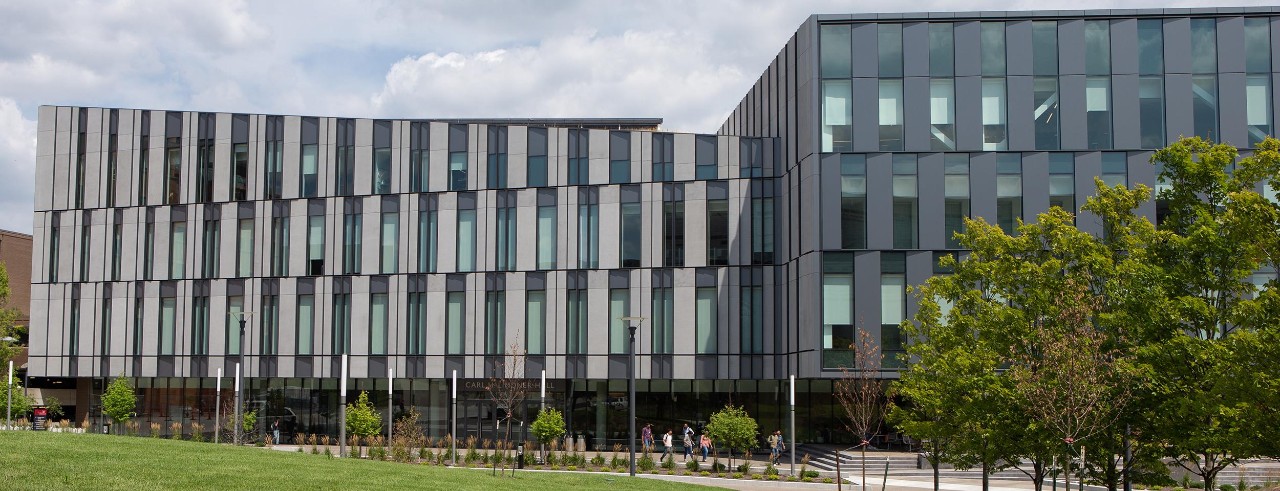
How student loan forgiveness could affect the economy
UC economist joins Cincinnati Edition to discuss effects of Biden's plan
The Supreme Court's decision as to whether President Joe Biden has the authority to cancel student loan debt will affect the economy and how people think about financing their college education, University of Cincinnati economist Michael Jones said.

Michael Jones, PhD, associate economics professor-educator and Kautz-Uible Economics Institute Academic Director.
Jones, the Kautz-Uible Professor of Economics at UC’s Carl H. Lindner College of Business, joined WVXU's Cincinnati Edition to discuss the Biden administration's student loan forgiveness plan. Brent Shock, Miami University vice president of enrollment management and student success, also joined the program.
Legal challenges have halted the implementation of Biden's proposed program and could prevent it from ever going into effect.
If the Supreme Court rules against the Biden administration and determines borrowers must fully repay their loans, there's a risk the default rate could increase, Jones said.
“Many of these students have become comfortable not having to pay several hundred dollars of payments every month,” he said, referencing the pause on payments that has been in place during the COVID-19 pandemic. “Having that shock where you see that bill come to them is going to affect their spending.”
If the debt forgiveness program is permitted to move forward, at a time when consumer spending already is high, it could lead to more inflation, Jones said.
“We certainly don't have a consumer spending problem right now,” he said. “Just last month, we saw some of the highest consumer spending numbers in two years. So I think there's real concern among economists in that is this just going to create more of an inflationary problem.”
The Supreme Court's decision also will affect how current and future college students view student loan debt. If they think their debt could be forgiven in the future, there will be less incentive to pay it off, Jones said.
“You have individuals who can pay their debt back,” the UC economist said. “But why in the world would you if you know there's a possibility here in the future of actually not having to pay that back.”
Other questions that have arisen during the debate about student loan cancellation include issues about fairness and equality and the cost of higher education.
While the average borrower has approximately $30,000 to $33,000 in student loan debt, Jones thinks college is a smart investment.
“What the future looks like as a result of taking on that debt is well worth it,” he said.
Featured image at top: Exterior of UC's Carl H. Lindner College of Business. Photos by Andrew Higley/UC Marketing + Brand
Impact Lives Here
The University of Cincinnati is leading public urban universities into a new era of innovation and impact. Our faculty, staff and students are saving lives, changing outcomes and bending the future in our city's direction. Next Lives Here.
Related Stories
German TV highlights UC expert's ancient Maya discoveries
March 2, 2026
The German television show 'Unsolved Case' talks to a University of Cincinnati expert about ballcourts used by the ancient Maya for a program examining how people used spheres as both tools and toys.
UC studies supplement, therapy alternatives to treat depression
March 2, 2026
Media outlets including Cleveland.com and Cleveland's WKYC News highlighted a new University of Cincinnati clinical trial funded by an approximately $3.5 million grant from the National Institutes of Health’s National Center for Complementary and Integrative Health to test two new nonpharmacological treatments for teens and young adults with depression.
Did plants nearly wipe out all marine life on Earth — twice?
March 2, 2026
An expert on global mass extinctions at the University of Cincinnati provided context to a new study examining the spread of the first land plants on Earth between 360 million and 540 million years ago.
